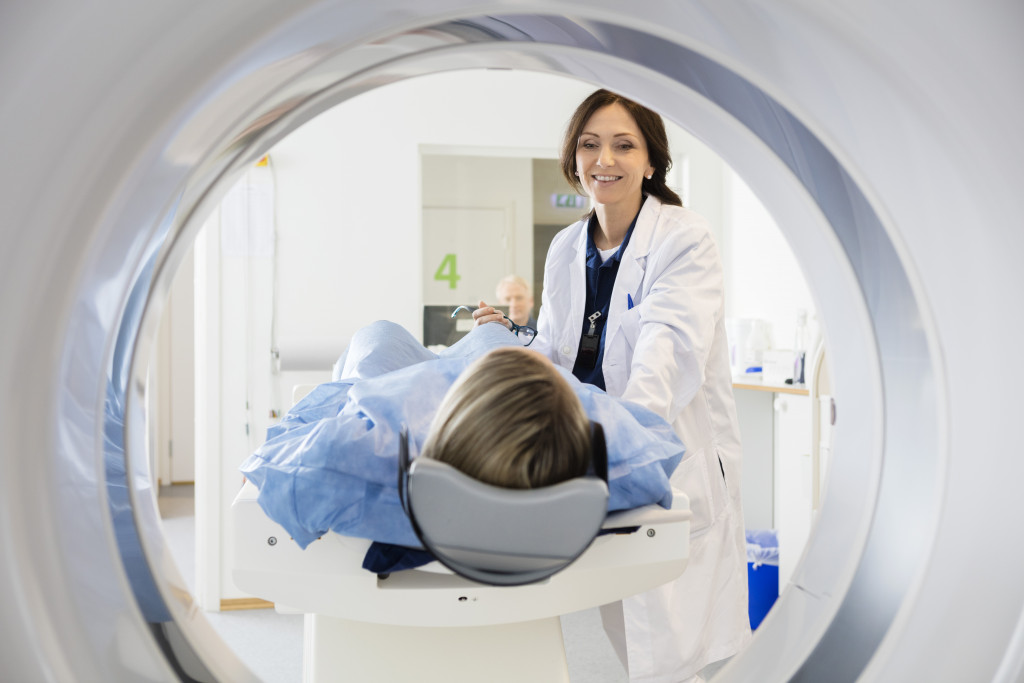Disclaimer: This website provides health information for educational purposes only and is not a substitute for professional medical advice, diagnosis, or treatment. Always seek the guidance of a qualified healthcare provider with any questions you may have.
In the fast-paced world, we live in. It’s no surprise that technology has begun to play a role in the medical field. With advancements in technology, doctors can diagnose and treat patients increasingly faster. This is especially beneficial for emergencies when every second counts. In this article, we will explore seven ways technology is helping to speed up the healthcare process.
1. Quick Drug Tests
Technology advancements are increasing healthcare speed with quick drug tests. These tests allow healthcare providers to administer a patient’s medication faster and more accurately. Moreover, healthcare providers can do on-site drug testing for quick and better results to start the medication soon.
In addition to their ability to speed up the administration of medication, quick on-site drug tests also have the potential to improve patient outcomes. It is evident that patients who receive their medication faster are less likely to experience adverse effects. In addition, patients who receive their medication via quick drug test are also more likely to adhere to their treatment plan.
2. Electronic Health Records
One of healthcare’s most critical technological advancements is the electronic health record (EHR). An EHR is an electronic version of a patient’s medical history accessible to authorized providers. EHRs can include demographics and insurance information to clinical data and lab results.
One of the most significant advantages of EHRs is that they allow providers to quickly and easily access a patient’s medical history. This can help to speed up the delivery of care, as providers can quickly review a patient’s past treatments and medications. In addition, EHRs can help to improve the accuracy of diagnoses and reduce the chance of medication errors.
3. E-Prescriptions
E-prescriptions, or electronic prescriptions, are a significant new advancement in healthcare. Rather than prescribing by hand, doctors can now create them electronically and send them directly to pharmacies.
It means that patients can get their medications faster and with less hassle. In addition, e-prescriptions can help to reduce errors. With handwritten prescriptions, there is always the potential for a doctor to make a mistake when writing out the dosage or the patient’s name. With an e-prescription, these mistakes can be easily avoided.
4. Improved Imaging
X-rays, ultrasounds, and MRIs are now much more detailed and clear than in the past, allowing doctors to better understand what is happening inside their patients.

This has led to faster diagnoses and improved treatment plans. In addition, technology has also made it possible to do more complex procedures, such as surgery, on an outpatient basis. It has helped speed up the healthcare process and improve patient outcomes.
5. Genetic Testing
Genetic testing is a type of medical test that looks at your genes, which are the building blocks of DNA. This testing can determine if you have a genetic disorder, such as cystic fibrosis or sickle cell anemia.
It can also be used to see if you’re at risk for certain diseases, such as cancer or heart disease. In the past, genetic testing could only be done on a small number of genes at a time, which was very expensive. But thanks to technological advances, we can now test for thousands of genes at once, and the cost of genetic testing has decreased dramatically. This is important because it means we can now do genetic testing much more quickly and easily, leading to faster diagnosis and treatment of diseases.
6. Telemedicine
In recent years, one of the most significant advancements has been the increase in speed with which healthcare can be delivered. It is primarily due to the rise of telemedicine, which allows doctors and other clinicians to consult with patients remotely. By using video conferencing and other digital tools, telemedicine can help to reduce waiting times, shorten appointments, and improve patient outcomes.
In addition, telemedicine can connect rural and underserved communities with special care that would otherwise be out of reach. As technology evolves, telemedicine will likely become an increasingly important part of healthcare delivery.
7. Robotics
Robotics is another area where technology is having a significant impact on healthcare. Robotics is used in various ways, from assisting surgeons in the operating room to providing physical therapy for patients. In addition, robotics is also being used to develop new treatments and drugs. For example, a team of researchers at MIT has developed a robot that can be used to deliver medications directly to the site of a tumor. This is important because we can target treatments more precisely, improving patient outcomes.
As you can see, there are many ways that technology is making healthcare faster. This benefits both patients and doctors by making the process more efficient. With continued advancements in technology, we can only expect the healthcare process to become even faster in the future.

